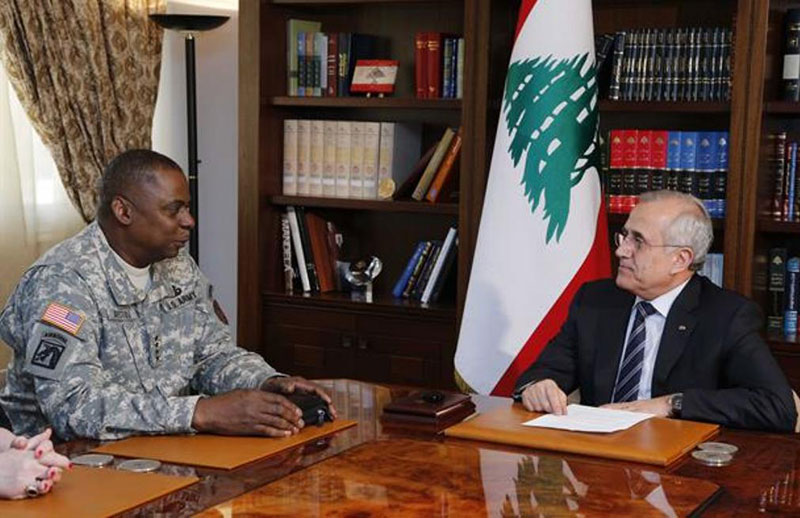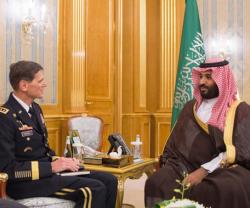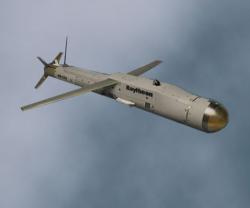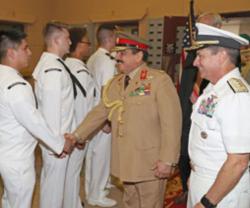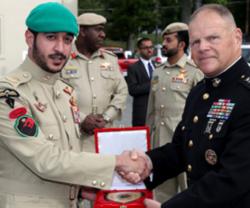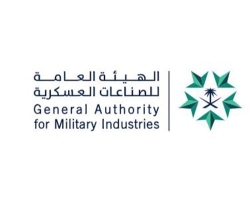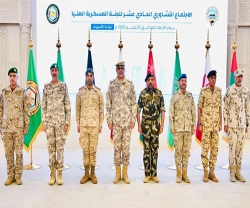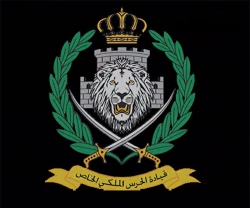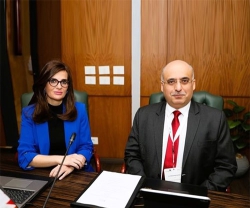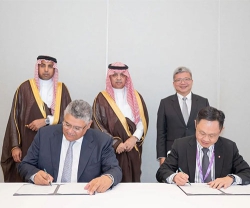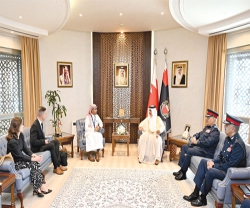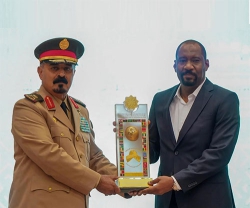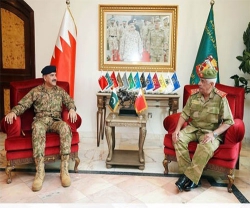Both sides also discussed developments at the local and regional scenes.
“General Austin underscored US CENTCOM’s continuing joint effort to strengthen the capacity of the Lebanese Armed Forces, recognizing its importance, as Lebanon’s sole legitimate defense force, in securing Lebanon’s borders and defending the sovereignty and independence of the state,” a statement from the US Embassy in Lebanon said.
On Thursday 05 June 2014, the Lebanese Army received 90 US armor-plated vehicles in the framework of the military assistance program, approved by the US administration in 2006 and amounting in value to USD 2 billion.
American military aid to Lebanon skyrocketed in 2006, and in 2012 Lebanon received the largest annual US military and police training funds. US aid comprises eight separate assistance programs run by the Department of Defense or the State Department. The Foreign Military Financing Program accounts for the majority at 69% of the total. Of the eight programs only the International Narcotics Control and Law Enforcement (INCLE) police-training program at 14% of the total has been comprehensively evaluated.
The United States has approved $8.7M in new FY 2013 assistance focused on increasing the Lebanese Armed Forces (LAF) ability to monitor, secure, and protect Lebanon’s borders against terrorist threats and the illicit transfer of goods. Since 2006, the United States has provided over $100M in Section 1206 funding (in addition to Foreign Military Financing, described below) to assist the LAF in building its counterterrorism capabilities.
International Military Education and Training (IMET): Lebanon’s IMET program is the fourth largest in the world. IMET builds strong ties between the United States and Lebanon by bringing Lebanese officers and officials to the United States to study and train alongside U.S. troops. In FY 2013, Lebanon has received $2.2M under the IMET program, funding that allowed more than 65 Lebanese military students to attend education and training in the United States. The majority of IMET is focused on Professional Military Education. Since 1985, the IMET program has brought more than 1,000 Lebanese military students to the United States for education and training.
Foreign Military Financing (FMF): Lebanon has received $71.2M in FY 2013, which provides equipment and training that support internal security, border protection, and counterterrorism missions. The United States works closely with the LAF on multi-year capability development plans laying out the priorities for both Lebanese and U.S. funding. Since 2005, the United States has provided more than $700 million in FMF.
Examples of recent U.S. assistance include:
Air Force: Spare parts for the existing Huey I fleet in order to improve the readiness of the Huey fleet to over 70%, an additional six Huey II helicopters (including spare parts and logistics support), and two Cessna caravans.
Navy: A state-of-the-art forty-two meter coastal security craft and eight rigid hull inflatable boats, with eight more shipping this fall.
Army: High Mobility Multipurpose Wheeled Vehicles (HMMWVs) plus spare parts; M113 armored personnel carriers, trucks and tractors; Tow II anti-tank launchers and missiles; M198 155 mm howitzers; 120 mm and 82 mm mortars; AT-4 anti-tank weapons; MK19 grenade launchers; sniper rifles, machine guns (including M4, M16A4, and M-60s), grenade launchers for rifles, and ammunition ranging from 5.56 mm to 155 mm; support equipment, including fully equipped field hospital, body armor, night vision goggles, and chemical weapon detection and protection equipment; and tactical radios, switch boards and a trucked radio system.
Training: The United States manages a comprehensive training program inside Lebanon tailored specifically to the LAF's operational and technical needs. The U.S. Government also hosts an annual naval exercise in Lebanon and facilitates LAF participation in regional multilateral military exercises such as EAGER LION.
Source: NNA; The White House

